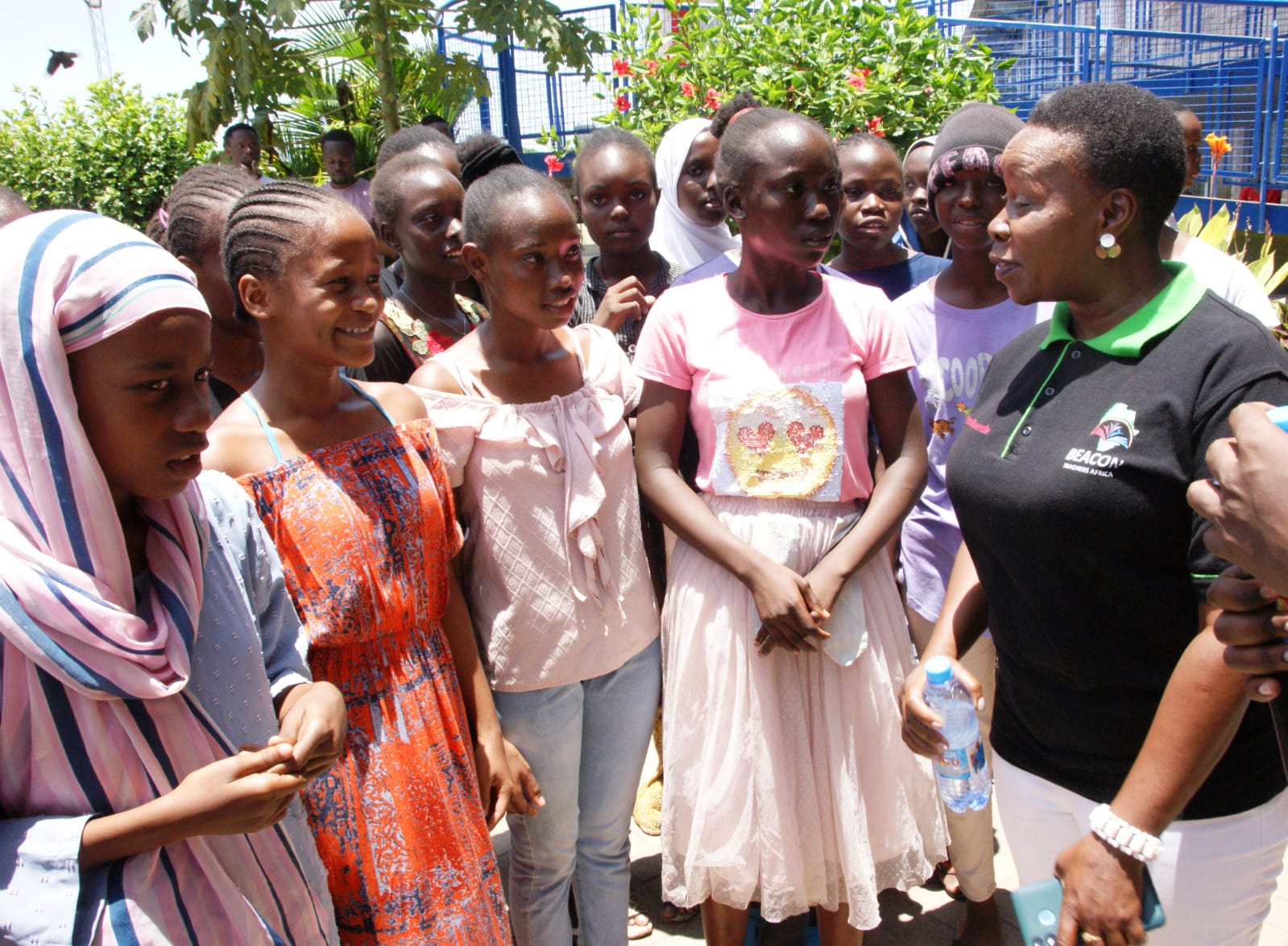
BY BRIAN OTIENO @Yobramos4
Sexual exploitation of
children at school and at home is becoming rampant because teachers and parents
are increasingly depressed, an NGO has said.
Beacon Teachers
Africa, an organisation that protects children and offers them psychosocial
support, says more has to be done to protect children in schools, but this has
to start at home.
Organisation founder
and CEO Dr Joan Mwende said the welfare of teachers has to be taken care of,
for them to be the parents the children need in schools.
She said from the research they have conducted some children learn improper acts from their homes and bring them to school.
“Monkey see, monkey
do! What the children see at home is what they do. We had a case somewhere in
Eastern region where ECDE children were found literally engaging in sex at
breaktime,” Mwende said.
“Upon investigation, we found that one of the children had seen a neighbour walk into their home and into their mother’s bedroom. She knocked the door but it was not answered. So she peeped and saw her mother and the neighbour engaging in sex.”
She spoke at Khadija
Primary School in Mombasa on Saturday during International Teachers’ Day while
celebrating her organisation's milestones in rescuing children from
exploitation.
Mwende said the girl taught her cousin at home
and her friends at school how to engage in sex.
“Violence against
children is in many forms. They can be violated physically, emotionally and
sexually. We have a lot of sexual violence against children across the country
but most of it is not reported,” Mwende said.
She said most times when children are abused sexually, they are convinced it is not something they should talk about.
The worst thing, she
said, is that in most cases, there would be no physical signs of the abuse
unless the child is subjected to medical assessment.
“Society also somehow
promotes this. There are cultures that propagate such kinds of sexual violence
on children. For instance, there are cultures that allow grandfathers to call
their granddaughters wives,” she said.
“And because you are
my wife, you can come and touch me or I can touch you. That touching is
sometimes done in full view of everybody. The grandfather might be fondling the
breasts of his grandchild and nobody would complain.”
She said this might
graduate to other forms of sexual abuse.
Mwende said not many
cases of sexual abuse of children are reported because the families feel it is
embarrassing and it might reflect poorly on them.
Some protect the
perpetrators because they are family members.
“Because there is also
stigma attached to it. Unfortunately, the stigma is not attached to the abuser,
it is attached to the victim and this is why this is complex,” she said.
She said many parents,
after discovering their children have been sexually abused, tell them not to
say.
“They choose to keep
it a secret. They would not report it to the police or take it to court because
they do not want it publicised that their child was sexually violated,” Mwende
said.
If a reported case is
prosecuted, then it takes ages to conclude, Mwende said.
“If a child was
violated at 14 years, and the case takes four or five years to conclude, then
the child is already an adult by the time it concludes and they may not be
willing to pursue justice at that time,” she said.
This discourages
people from going to court over such cases.
Mwende also faults the
criminal justice system for not giving the victim compensation in case of a
conviction.
She said the only
bright side is that an offender is jailed to protect the society.
“But then what happens
to the victim? They are just left with nothing. They cater to their own medical
attention, there is no financial reward to say take care of a baby that may
have been born out of that abuse,” Mwende said.
In schools, she noted,
teachers may take out their frustrations on innocent learners because they do
not have that fatherly or motherly bond with the children.
“That is why at Beacon
Teachers, we create that bond with the child and through this bond, they open
up to us on many things that they may not open up to anybody else, not even
their parents,” Mwende said.
Beacon Teachers Africa
Mombasa secretary Rev Maria Kipruto said most of the children who go to school
today are not psychologically stable.
“Any child who is not
psychologically stable in school cannot learn. So first thing, we assess the
mood of the child when they come to school. We are then able to interact with
the child and unlock their minds by demonstrating love, care and protection,”
she Kipruto said.
Kipruto said with
digital literacy as one of the competences that a child needs to obtain in
everyday learning today, but unfortunately this exposes them to diverse content,
including sexual content.
“Today, very young
learners freely admit they are sexually active. They would tell you about sex
and pornography and you will be shocked. It is very traumatising,” she said.

 © The Star 2024. All rights reserved
© The Star 2024. All rights reserved